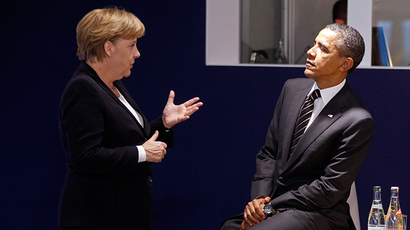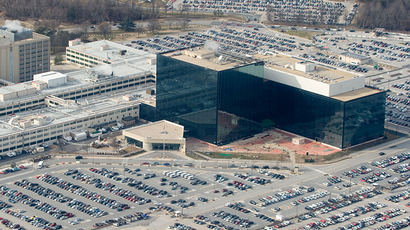Germany handed law-protected private data to NSA for years – report

Intelligence service BND failed to protect the private data of German citizens as it handed over internet data collected at a Frankfurt traffic hub to the US, German media report citing secret documents.
The documents cited by WDR and NDR television and the newspaper Süddeutsche Zeitung, which broke the news together, were obtained from the federal government during an ongoing parliamentary investigation into US National Security Service spying on German soil.
Just like the NSA is forbidden by the law to spy on Americans, the BND is not allowed to spy on Germans. So when last year in was revealed that the two intelligence services had been collaborating to collect communication data at the De-Cix internet exchange node in Frankfurt, the BND had to produce explanations.
The German service said it had a filter running, which prevented data of German citizens from being collected and forwarded to the NSA. But the system, which was claimed to ensure “complete and faultless” separation of the protected data was anything but faultless, and the BND knew it, the Friday reports said.
In fact the filter, called Dafis, could only withhold about 95 percent of the sensitive communications, initial tests held in 2003 showed. It was not fixed by 2004, when the collection and forwarding of the data started and it still had problems by July 2008, when the program was terminated, the documents indicate.
The BND's participation in the program codenamed ‘eikonal’ was needed because the NSA was not allowed a direct access to the node. Its own review said telling apart foreign and German communication data completely was impossible. But the fact that the German data would be leaked to the Americans and that this may be a violation of the law was not reported to the parliamentary oversight committee.
The German intelligence service also noticed that the NSA was trying to spy on companies like the aerospace giant EADS and the French government as part of the operation, the reports said.
The Bundestag investigation into NSA's spying in Germany was prompted by a series of exposés based on documents provided to the German media by whistleblower Edward Snowden. The NSA reportedly not only collected bulk communication information but also eavesdropped on German Chancellor Angela Merkel.
The revelations caused uproar among Germans and made the government take a tougher stance on American espionage programs. After it failed to secure a ‘no-spying’ deal from Washington, two US informants working in the BND were outed, with details of the operations extensively covered by the media.














